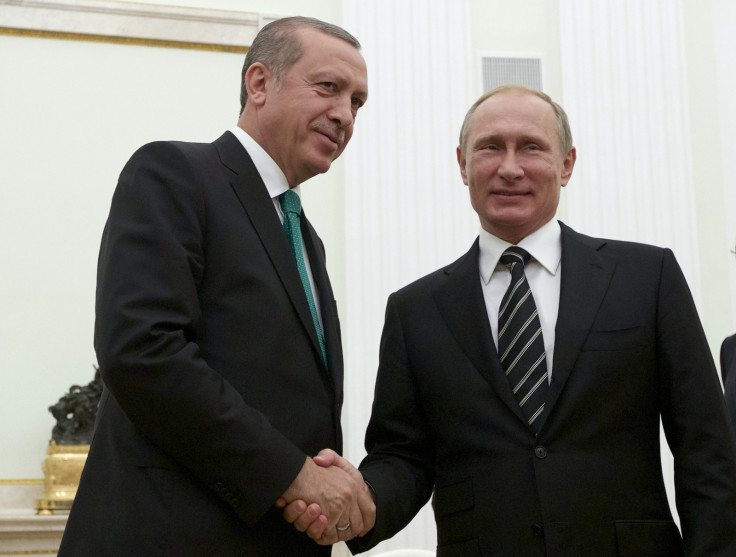Nationwide ceasefire in Syria within reach as Turkey and Russia finalise deal
A source told Turkish state-run news agency ceasefire could come into force after midnight on 29 December.

A nationwide ceasefire is close to be implemented in Syria following negotiations between Turkey and Russia, Turkish state-run news agency Anadolu reported on 28 December.
The agency quoted a confidential source, who asked to remain anonymous due to restrictions on talking to the media, who said the two countries were working to ensure the ceasefire would come into force after midnight, on 29 December.
The ceasefire is expected to involve all areas of fighting in the country where the forces loyal to Syrian president Bashar al-Assad are fighting against the oppositions groups. The source added that terrorist organisations will be excluded from the deal, although it did not specify which of the militant groups involved in fighting for or against Assad's regime are considered as such.
Turkish forces are involved in military operations against the Islamic State (Isis) in northern Syria, near the town of al-Bab, while the Kurdish People's Protection Unites (YPG) – which Turkey sees as an extension of the Kurdistan Workers' Party (PKK), listed as a terrorist organisation, are advancing towards Isis-held Raqqa with the support of the US-led international coalition. The Iran-backed Lebanese Hezbollah militias, which Turkey designated as a terrorist organisation, are instead supporting the Syrian army.
Russia has repeatedly said the groups fighting against Assad should be seen as terrorists, but, more specifically, it officially lists the al-Nusra Front, which controls part of the rebel-held province of Idlib, as a terrorist group, as well as the Islamic State and other Sunni Islamist militant organisations.
According to Anadolu's source, if the ceasefire holds, political negotiations involving representatives from the rebels and the government would then start in Kazakhstan under Turkey and Russia's guidance. Russia and Turkey, along with Iran, had reached an agreement to act as guarantors of peace talks on 20 December.
Russia and Turkey relations were the indirect target of the assassination of the Russian ambassador to Turkey in the city of Ankara on 19 December, but both countries refused to let the attack derail their negotiations over Syria.
According to Russian news agency Tass, a meeting between the warring parties will be held in Astana in the second half of January and the peace negotiations will continue in February in Geneva, where the UN Secretary General's special envoy for Syria Staffan de Mistura plans to launch the next round.
Syria's civil war started in 2011 following protests asking for the end of Assad's rule, which erupted as part of a region-wide wave of pro-democracy protests known as the Arab Spring. In the ensuing five years of conflict in Syria, more than 10 million people have been displaced, according to the United Nations. While the number of casualties cannot be counted with certainty, it is estimated that more than 300,000 people lost their lives in the war.
© Copyright IBTimes 2025. All rights reserved.






















